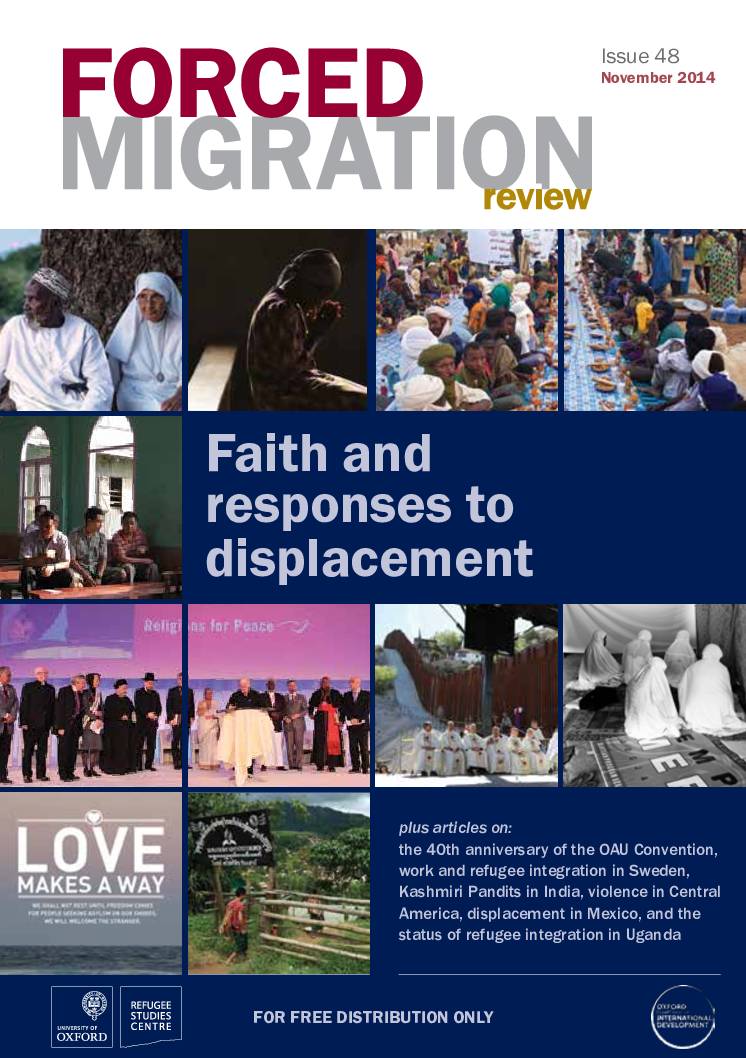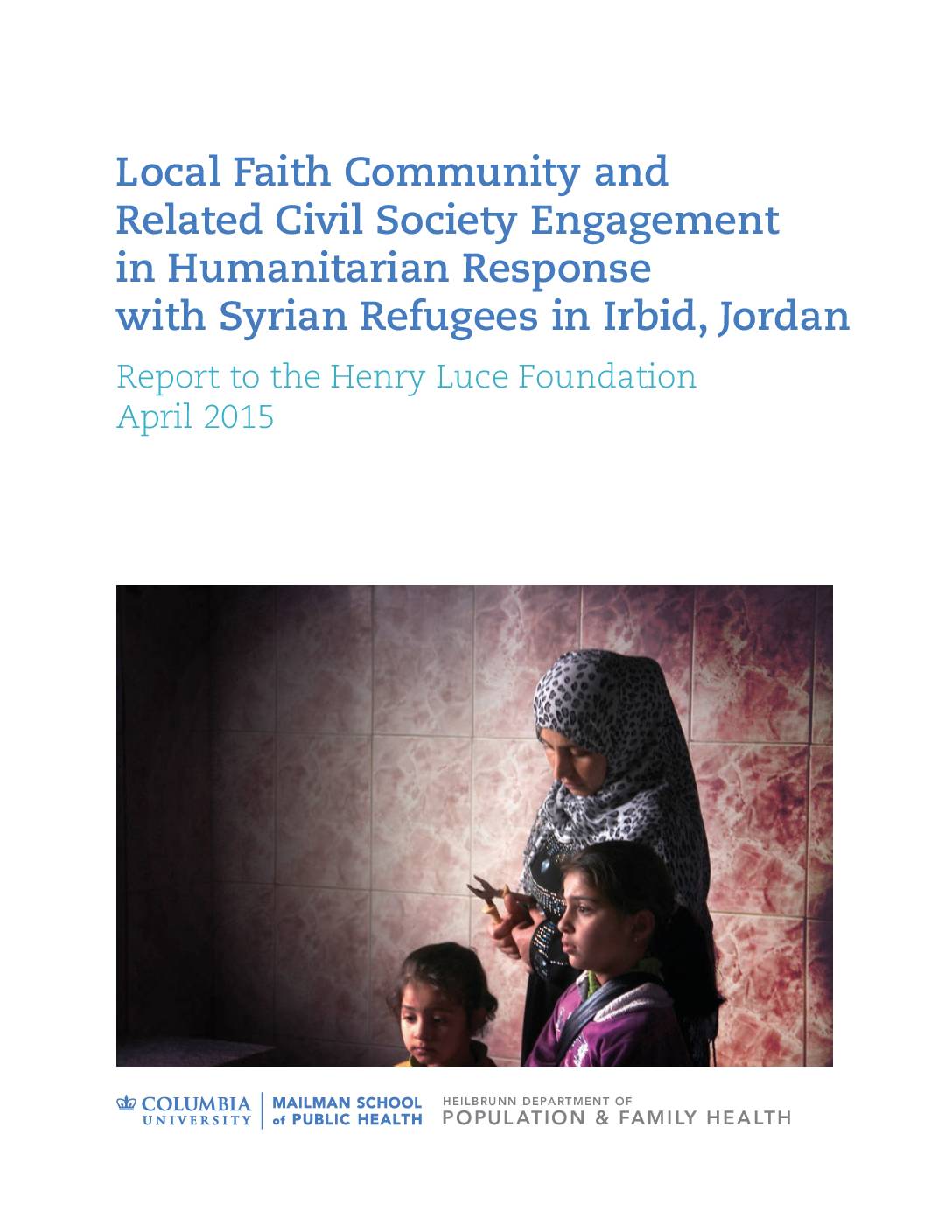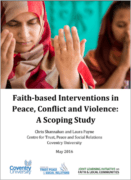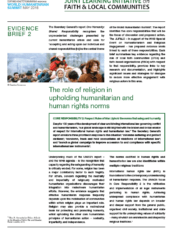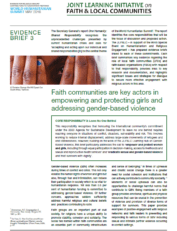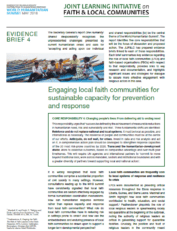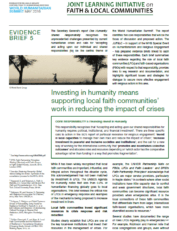The Joint Learning Initiative on Faith & Local Communities has worked collaboratively with its members and other partners worldwide to collate and review the evidence on local faith communities (LFCs) and religious engagement in humanitarian response. JLIF&LC Resilience Hub Co-Chairs Alastair Ager, Queen Margaret University in Edinburgh, and Helen Stawski, Islamic Relief, led the at team of over 20 authors and reviewers to produce the five evidence briefs.
Each of the five evidence briefs summarises key evidence regarding the role of LFCs and faith-based organisations (FBOs) with respect to one of the Core Commitments, provides links to key research and documentation, and highlights significant issues and strategies for dialogue to secure more effective engagement with religious actors in this area. The Key Messages and five Evidence Briefs are posted below, along with the annotated bibliography of the resources included in the evidence collation process.
The JLIF&LC Peace & Conflict Learning Hub will also in this session launch its Scoping Paper on Multi/Inter-faith Approaches to Peace Building, which also served as the basis for one of the Evidence Briefs. The JLIF&LC Peace & Conflict Learning Hub, led by Lucy Salek, Islamic Relief, Sarah Pickwick, World Vision, and Alpaslan Ozerdem, Coventry University, led the drafting of the Scoping Report in collaboration with its 140 Learning Hub members. The lead authors of the Scoping Report are Christopher Shannahan and Laura Payne of Coventry University.
Jump to section:
- Overview of the Evidence
- Launch: Peace & Conflict Scoping Report
- Evidence Brief 1: Engaging faith communities to meet the needs of people living in conflict
- Evidence Brief 2: The role of religion in upholding humanitarian and human rights norms
- Evidence Brief 3: LFCs are key actors in empowering and protecting girls and addressing GBV
- Evidence Brief 4: Engaging local faith communities for sustainable capacity for prevention and response
- Evidence Brief 5: Investing in humanity means supporting LFCs work in reducing the impact of crises


